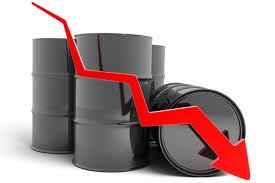P
ProfRem
Guest
Oil prices tumbled Monday below $40 per barrel for the first time since April, with both Brent and US crude prices falling by nearly four per cent.
The latest slump in oil prices followed heightened fears of an oil glut after a survey suggested that crude oil output from the Organisation of Petroleum Exporting Countries (OPEC) reached record highs in July.
This posed greater concerns among managers of the Nigerian economy who had predicated the 2016 budget on oil benchmark price of $38 per barrel.
The shortfall suggests that government’s plan to boost the economy through increased spending on infrastructure will struggle to take off this year.

WTI crude plumbed $39.86, its lowest since April 20, trading $1.51, or 3.6 percent, lower at $40.09.
Brent crude was down $1.43, or 3.3 percent, at $42.10 a barrel, after a session low at $41.87.
A survey by Reuters on Friday found that output from the OPEC likely rose in July to its highest in recent history as Iraq pumped more and Nigeria squeezed out additional crude exports despite militant attacks on oil installations.
Data on Friday also showed the United States added 44 new oil drilling rigs in July, the most for a month in two years, intensifying concerns that global production could once again get to unmanageable levels like it did in 2014-2015.
The latest slump in oil prices followed heightened fears of an oil glut after a survey suggested that crude oil output from the Organisation of Petroleum Exporting Countries (OPEC) reached record highs in July.
This posed greater concerns among managers of the Nigerian economy who had predicated the 2016 budget on oil benchmark price of $38 per barrel.
The shortfall suggests that government’s plan to boost the economy through increased spending on infrastructure will struggle to take off this year.

WTI crude plumbed $39.86, its lowest since April 20, trading $1.51, or 3.6 percent, lower at $40.09.
Brent crude was down $1.43, or 3.3 percent, at $42.10 a barrel, after a session low at $41.87.
A survey by Reuters on Friday found that output from the OPEC likely rose in July to its highest in recent history as Iraq pumped more and Nigeria squeezed out additional crude exports despite militant attacks on oil installations.
Data on Friday also showed the United States added 44 new oil drilling rigs in July, the most for a month in two years, intensifying concerns that global production could once again get to unmanageable levels like it did in 2014-2015.

